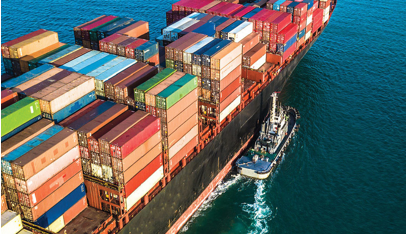INP-WealthPk
Qudsia Bano
The Pakistan Business Forum (PBF) has called on the government to develop a long-term export strategy to ensure economic stability and enhance investor confidence.

Talking with WealthPK, PBF President Khawaja Mehboob ur Rehman emphasized that Pakistan’s export policies must be consistent and backed by parliament to protect them from political changes and short-term policymaking. He believes a well-structured, long-term approach will provide the businesses with a stable environment, allowing them to plan and expand with confidence.
Mehboob highlighted that Pakistan’s export sector has struggled due to frequent policy shifts and lack of institutional support. “A long-term, cohesive export strategy, backed by parliament, will not only stabilize the business environment but also provide confidence to the investors, businesses, and trade partners,” he said. He further stressed the need for a robust trade dispute resolution mechanism to protect exporters and ensure smooth international trade operations.
Experts agree that a structured export strategy is critical for Pakistan’s economic sustainability. Syeda Atifa, a financial analyst at SNL Financials, said that consistent policies are the key to attracting foreign buyers and investors. “Frequent changes in export policies create uncertainty and discourage foreign partners from engaging in long-term contracts with Pakistani firms.
A stable strategy will boost Pakistan’s reputation as a reliable trade partner and enhance its competitiveness in the global markets,” she explained. Atifa also emphasized the importance of integrating the industrial policy with export goals, particularly by encouraging value-added manufacturing and reducing dependence on raw material exports.
Dr. Ahmed Faraz, a senior economist, echoed similar sentiments, stressing the need for competitive energy rates to support the export sector. “Pakistani exporters face high production costs due to the expensive energy. A long-term policy should ensure stable and competitive electricity and gas prices, helping the local industries compete with regional players such as India and Bangladesh,” he said.
Faraz also highlighted the importance of export diversification, calling for investments in non-traditional sectors such as IT, pharmaceuticals, and engineering goods to reduce reliance on textile exports. The PBF has further urged the government to strengthen economic diplomacy, using Pakistani trade missions abroad to secure market access in high-demand regions such as the European Union and the United States.
The business community believes that without a long-term export strategy, Pakistan will continue to face economic instability and balance-of-payments crisis. By implementing a structured and transparent approach, the policymakers can create a resilient export sector that contributes to sustainable economic growth and investor confidence.
Credit: INP-WealthPk













